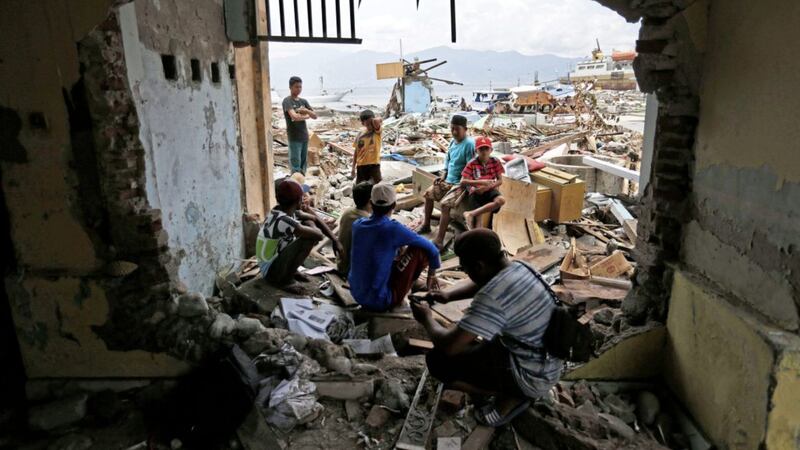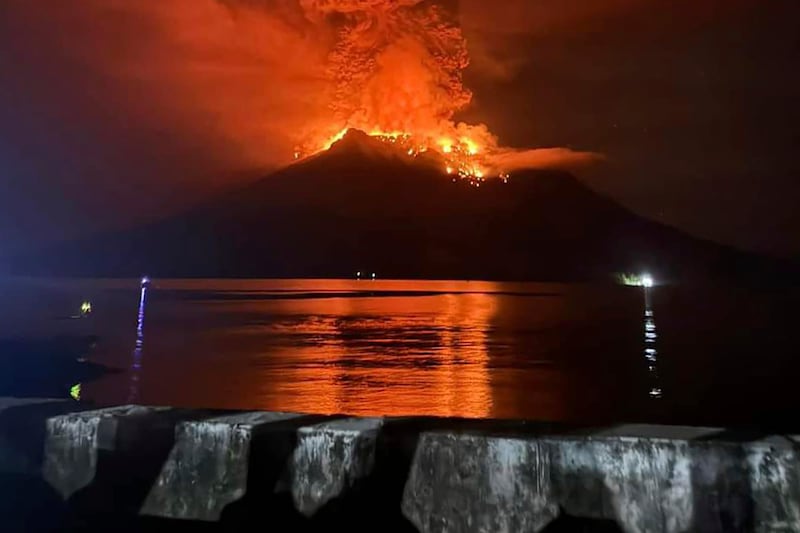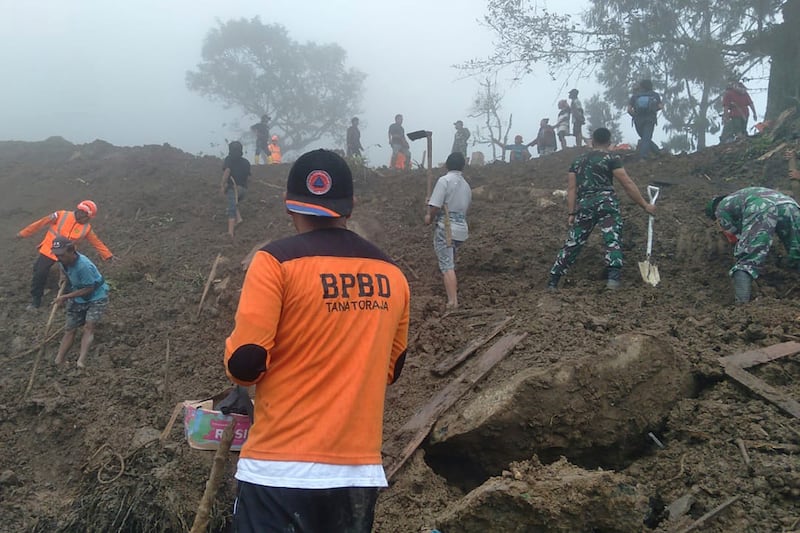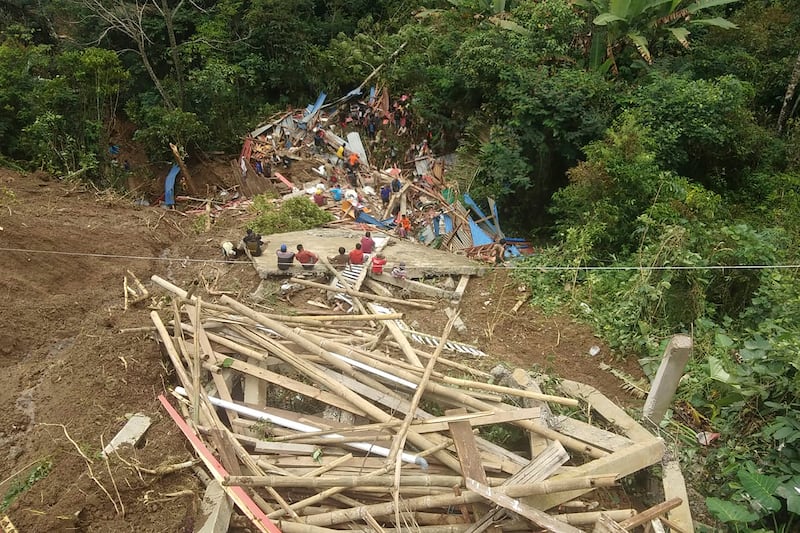Thousands of people living in tents and shelters in the Indonesian city hit by a powerful earthquake and tsunami are facing an uncertain future, unsure when they will be able to rebuild.
Residents whose homes have been destroyed spend hours often futilely trying to secure necessities such as fuel for generators, seven days on from the disasters.
They are hoping more aid will arrive in the shattered city of Palu and the surrounding Donggala district on the island of Sulawesi.
Some residents have taken to digging through reeking piles of sodden food and debris, searching a warehouse wrecked by the tsunami for anything they could salvage: cans of condensed milk, soft drinks, rice, sweets and painkillers.
Others carted away corrugated metal, wood, piping and other items to build temporary shelters or sell.
National police spokesman Brigadier General Dedi Prasetyo said security will be ramped up to ensure law and order after 92 people were arrested for looting goods such as motor oil, tyres and farming equipment.
Authorities earlier allowed desperate villagers to grab food supplies from shops but have warned them not to take other things. He said security will be necessary for economic activity to resume.
The official death toll has reached 1,424 with thousands more injured and more than 70,000 residents displaced from their homes. The number of dead is expected to soar as rescue crews comb through affected areas after being slowed initially by broken, impassable roads and other damage.
Hoax warnings have proliferated since the magnitude 7.5 quake and tsunami on Friday, and the national disaster agency has asked people to only rely on credible sources of information.
The agency said the health ministry has identified air transportation, water treatment, generators and shelter or tents as key priorities.
International help is pouring in, with Singapore, South Korea, Britain and Japan sending military transport aircraft. Multinational companies such as Google and Apple have also pledged monetary assistance, in addition to £11.6 million from the UN and millions more from other countries.
Military officials said Palu's airport is expected to reopen for civilian traffic later on Thursday.
About 100 Indonesian marines have landed at the airport and 200 more are on their way to help in rescue efforts. The work to retrieve bodies has been hampered by lack of heavy equipment to dig them out.
The UN estimated 200,000 people need assistance and said Indonesia has asked Unicef to send social workers to support vulnerable children who are alone or became separated from their families
The Sulawesi coastline spreading out from Palu is a surreal landscape of debris, beached boats, overturned cars and the foundations of obliterated houses.
In some areas, rescuers use sniffer dogs to detect victims buried under tons of mud and debris.








